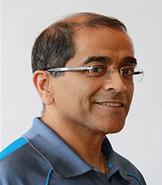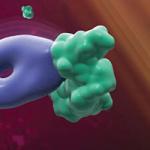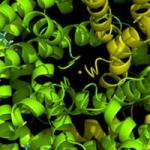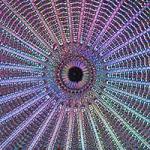
Sanjay Arvind Desai, M.D., Ph.D.
Senior Investigator
Apicomplexan Molecular Physiology Section
NIAID/DIR
Research Topics
We are interested in how malaria parasites acquire nutrients and other essential solutes from the human bloodstream. Our studies have identified two unusual ion channels that play a central role in trafficking solutes between serum and parasite compartments. One of these channels, the plasmodial surface anion channel (PSAC), is exposed on the infected erythrocyte surface and is generally recognized as an important drug target.
Significant accomplishments include the following:
- Determination that PSAC is the primary uptake mechanism for diverse organic and inorganic solutes
- Discovery of a novel drug resistance mechanism in malaria parasites involving reduced PSAC-mediated uptake
- Use of high-throughput screening to identify novel, high-affinity PSAC inhibitors suitable for antimalarial drug development
- Identification of the clag3 genes as determinants of PSAC activity
Our work was highlighted with the first animated cover of a major biological sciences journal. The animation is accessible from the print journal using a smart phone with a downloaded QR code reader. Click the journal cover image below to view the 3-D animation on YouTube.
Cover of Cell volume 145, number 5. The pictured QR code links to an online 3-D animation of circulating human erythrocytes with two cells infected by malaria parasites. Intracellular parasites acquire nutrients via PSAC on the host membrane.Cover of Cell volume 145, number 5. The pictured QR code links to an online 3-D animation of circulating human erythrocytes with two cells infected by malaria parasites. Intracellular parasites acquire nutrients via PSAC on the host membrane. Animation by Anita Mora and Austin Athman (RML, NIAID).
Inquiries about predoctoral and postdoctoral fellowships, as well as Ph.D. studentships in the NIH Graduate Partnership Program, are welcome. Contact Dr. Desai via email at sdesai@niaid.nih.gov.
Biography
Dr. Desai received his M.D. and Ph.D. from Washington University in St. Louis. Following an internal medicine residency and infectious diseases fellowship at Duke University Medical Center, he joined the Division of Intramural Research. His work focuses on the molecular and cellular biology of malaria parasites.
Selected Publications
- Nguitragool W, Bokhari AA, Pillai AD, Rayavara K, Sharma P, Turpin B, Aravind L, Desai SA. Malaria parasite clag3 genes determine channel-mediated nutrient uptake by infected red blood cells. Cell. 2011;145(5):665-77.
- Desai SA, Bezrukov SM, Zimmerberg J. A voltage-dependent channel involved in nutrient uptake by red blood cells infected with the malaria parasite. Nature. 2000;406(6799):1001-5.
- Ito D, Schureck MA, Desai SA. An essential dual-function complex mediates erythrocyte invasion and channel-mediated nutrient uptake in malaria parasites. Elife. 2017;6.
- Schureck MA, Darling JE, Merk A, Shao J, Daggupati G, Srinivasan P, Olinares PDB, Rout MP, Chait BT, Wollenberg K, Subramaniam S, Desai SA. Malaria parasites use a soluble RhopH complex for erythrocyte invasion and an integral form for nutrient uptake. Elife. 2021;10.
- Saggu GS, Shao J, Siddiqui MA, Traver M, Macedo-Silva T, Brzostowski J, Desai SA. Identification of a large anion channel required for digestive vacuole acidification and amino acid export in Plasmodium falciparum. PLoS Biol. 2025;23(5):e3003202.
Related Scientific Focus Areas

Microbiology and Infectious Diseases
View additional Principal Investigators in Microbiology and Infectious Diseases

Molecular Biology and Biochemistry
View additional Principal Investigators in Molecular Biology and Biochemistry



Biomedical Engineering and Biophysics
View additional Principal Investigators in Biomedical Engineering and Biophysics
This page was last updated on Tuesday, August 5, 2025